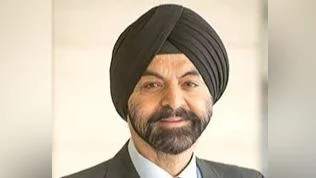The World Bank has approved a new $250 million program aimed at enhancing Morocco's municipal solid waste management system. This initiative is intended to support the country's efforts in improving both financial and environmental aspects of waste management.
Moroccan urban areas, which house over 60 percent of the nation's population, are vital to the country's growth. The New Development Model in Morocco prioritizes making cities more livable and appealing. Over the last twenty years, municipal solid waste management has been a significant focus for the Moroccan government, leading to notable improvements. With assistance from the World Bank, urban waste collection coverage increased dramatically from 40 percent in 2008 to 96 percent by 2022. Despite this progress, challenges remain in addressing environmental and financial issues within the sector.
In response to these ongoing challenges, Morocco launched the national municipal waste management and valorization program (PNVDM) in 2023. This program emphasizes sustainable practices such as reducing landfill use and enhancing waste recovery processes. The newly approved World Bank-supported initiative aims to contribute directly to PNVDM's goals by upgrading landfill management, extending waste valorization efforts using viable business models, closing certain uncontrolled landfills, finding additional revenue sources for the sector, and supporting greenhouse gas emissions monitoring aligned with the Paris Agreement.
"Helping to promote more livable and attractive cities is a priority for the World Bank in Morocco," stated Moustapha Ndiaye, Country Director for the Maghreb and Malta at the World Bank. "Our current Country Partnership Framework emphasizes the need for improving key infrastructure delivery services in urban areas."
The new program will also receive technical assistance and funding from two organizations: the Global Facility for Disaster Risk Reduction and Recovery (GFDRR) and the Public-Private Infrastructure Advisory Facility (PPIAF).

